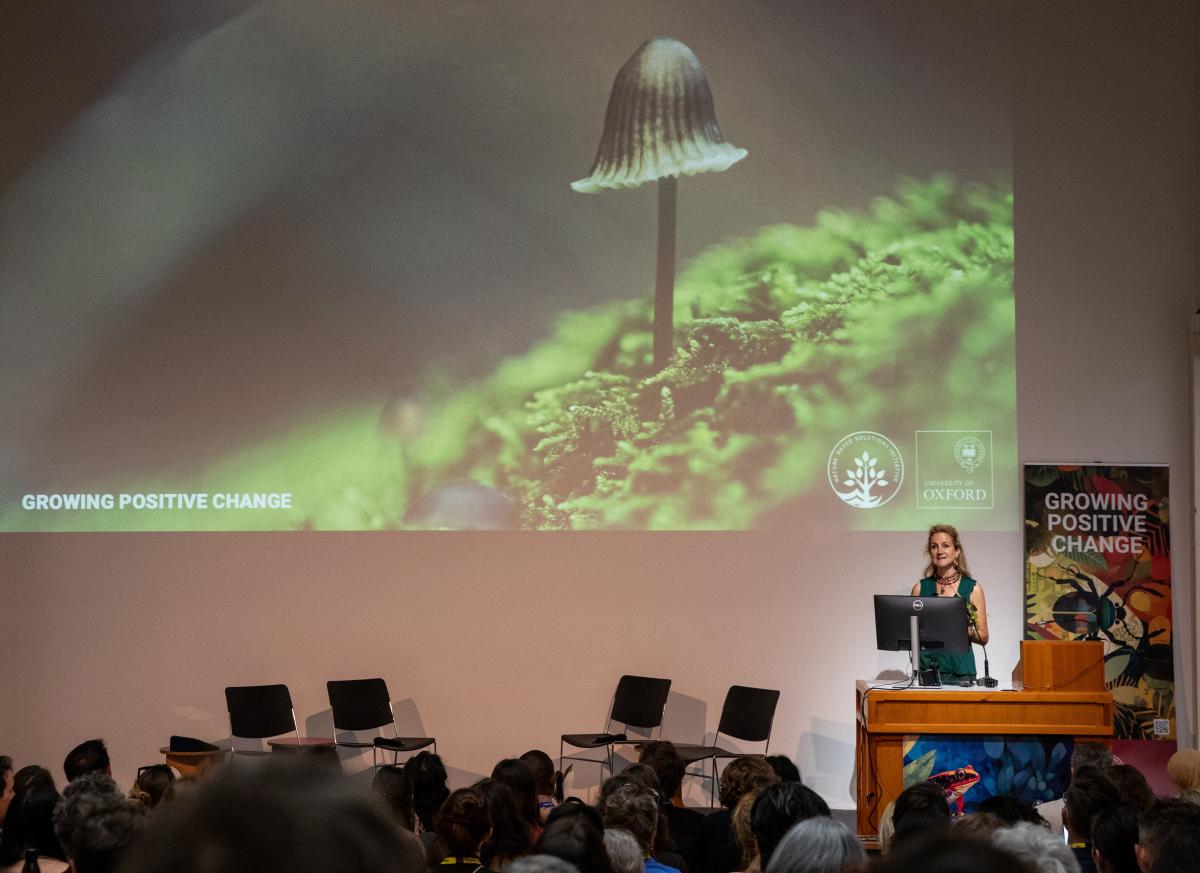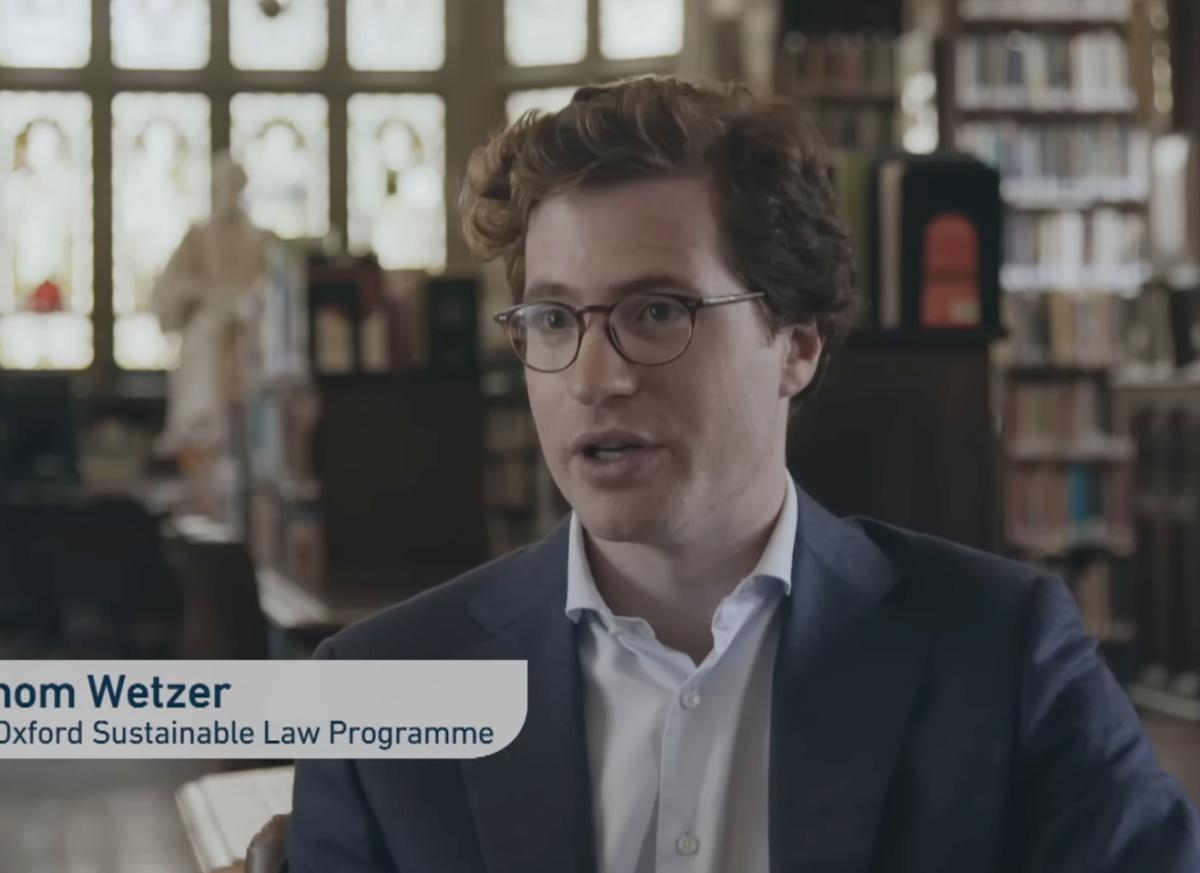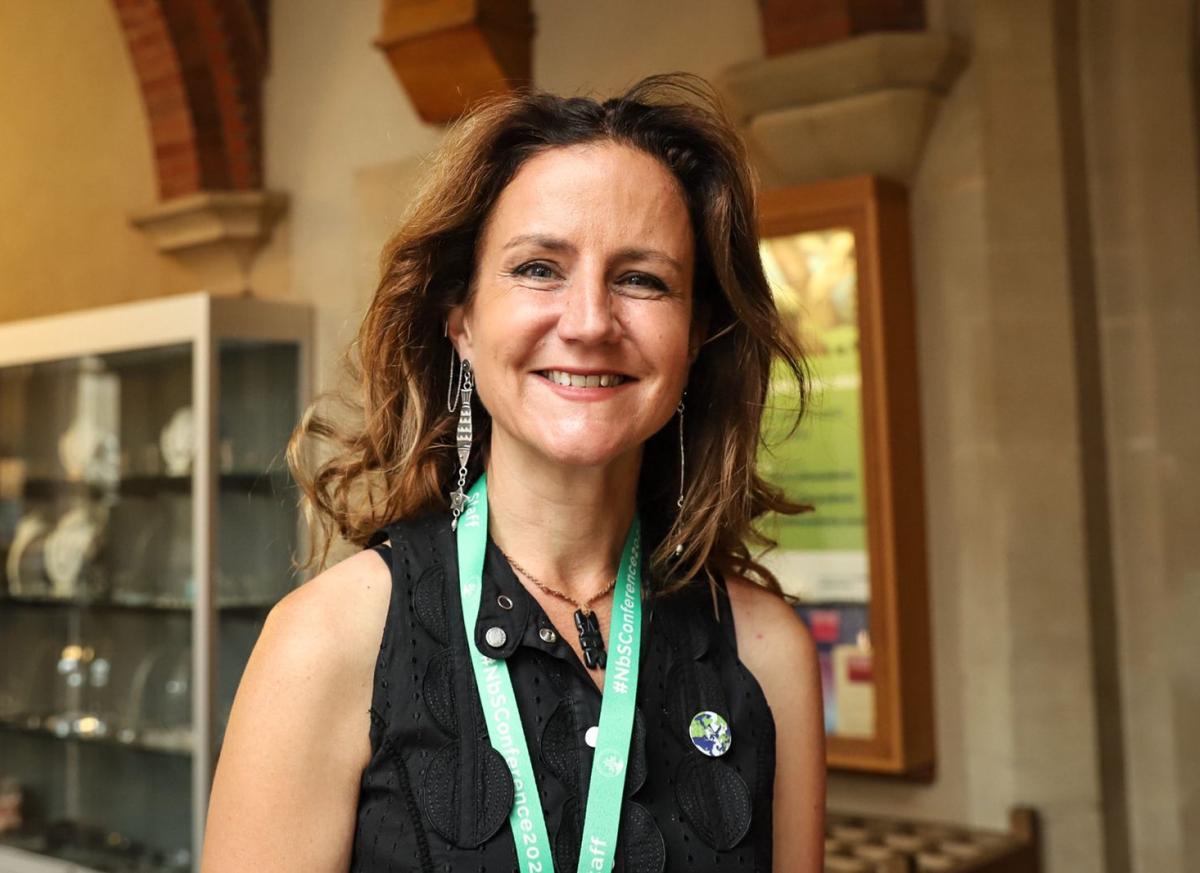Nature based Solutions spotlight
 The Nature-based Solutions Initiative publishes research on the critical importance of nature‐based solutions for addressing societal challenges, including mitigating and adapting to climate change.
The Nature-based Solutions Initiative publishes research on the critical importance of nature‐based solutions for addressing societal challenges, including mitigating and adapting to climate change.
Getting the message right on nature‐based solutions to climate change was Global Change Biology's most-viewed article of 2024 with an impressive 23,232 views.
The Conversation UK article The climate and biodiversity crises are entwined, but we risk pitting one against the other highlighting the importance of aligning climate and biodiversity policies to successfully mitigate climate impacts.
Biodiversity projects at OxSFG
Providing environmental data for use in financial institutions is an important element of Oxford Sustainable Finance Group's (OxSFG) work.
Collaboration
Smith School researchers contribute to University of Oxford of initiatives on biodiversity including:
The Leverhulme Centre for Nature Recovery
The Leverhulme Centre for Nature Recovery (LCNR) was established at the University of Oxford in 2022, with an initial period of ten years. Its purpose is to draw on and consolidate the world-leading expertise of the University and its partners to address the challenge of delivering effective and socially inclusive nature recovery at scale, in order to support goals of reversing national and global biodiversity decline by the end of this decade.
Halting and reversing the ongoing loss and degradation of nature and its biodiversity are amongst the greatest challenges of our time. There is new political will and public demand to restore the natural world, but no previous experience of doing so at the scales required while also fully meeting societal needs. The Leverhulme Centre for Nature Recovery is tackling this challenge by addressing the ecological, social, cultural and economic dimensions of nature recovery in a single framework, harnessing state-of-the-art technologies and thereby developing and testing an innovative model to deliver nature recovery at scale, and monitor progress towards this recovery. The work of the Centre is both empirical and synthetic, being tightly embedded in case studies in the UK and internationally, while also exploiting big data, Earth Observation, artificial intelligence and modelling to connect across scales and work packages. It is also be a hub for innovative thinking: our interdisciplinary approach unites leading researchers and thinkers from a wide range of disciplines including geography, ecology, social science, finance, economics, psychiatry, anthropology, artificial intelligence, statistics and Earth Observation.
The Centre is led by Director Professor Yadvinder Malhi along with an Executive Group including Co-Directors Professor Nathalie Seddon, Professor Michael Obersteiner, Dr Ben Caldecott and Dr Steven Reece. SSEE researchers involved include Professor Cameron Hepburn and Dr Felicia Liu.
Agile Initiative
Funded by Natural Environment Research Council (NERC), the Agile Initiative at the Oxford Martin School aims to revolutionise how world-class, high-impact research supports environmental policymaking.
For governments to make sound decisions about the environment, policymaking must be informed by the very best research. However, science does not always seek to answer the same questions that directly face policymakers, nor does it move at the speed with which policy decisions need to be made.
The programme will respond to specific environmental policy questions with fast-paced research ‘Sprints’. Through the Sprints, Oxford's world-leading academics and partners will work together to feed evidence and science-led solutions into the policy cycle in real-time.
The first five Sprints have been chosen for their socioeconomic and environmental importance to policy, potential impact, time-scale deliverability, and inclusiveness and diversity.
- Sprint One: Providing guidance on accounting for biodiversity
- Sprint Two: Systemic innovation to transform nutrient flows
- Sprint Three: Scaling up Nature-based Solutions
- Sprint Four: Decarbonising shipping via green ammonia
- Sprint Five: CO2 storage in and beneath our shelf seas
Other Sprints during the five-year programme will focus on environmental topics identified in collaboration with decision-makers in government, business and NGOs.
Agile initiative
Oxford Martin School website
Constructing and Scaling of Rewilding Tokens
Funded by NERC and Finance for Biodiversity (F4B), Constructing and Scaling of Rewilding Tokens explores the scalability of biodiversity and nature recovery tokens, and the construction of a tokens marketplace.
Rewilding tokens represent a verified unit of ecosystem ‘upgrading’ that could hold the key to making nature recovery investable and scalable. It has great potential to introduce more liquidity in the market and diversify nature-recovery investment portfolios. Yet, a strong market design is integral to scaling this instrument.
We are exploring the key building blocks of an investable and scalable tokens market, including technical needs, data feeds, and pricing mechanisms. We also analyse the demography of likely participants of the market and their drivers for participation, with the view of identifying levers for scaling up rewilding tokens.
The seedcorn project may build the foundation for subsequent, larger-scale deployment and research projects.
Nature news and insights
Professor Nathalie Seddon on her Marsh Prize, COP16 and the importance of traditional knowledge
Professor Nathalie Seddon’s research career has taken her from the rainforests of Peru to the top levels of academia and policy. In this Smith School interview, she discusses her recent award, COP16, and the importance of traditional knowledge when it comes to tackling climate change and biodiversity loss.
Planetary Justice: Climate liability and nature’s legal rights
Al Jazeera’s Earthrise programme explores planetary justice and climate liability, featuring interviews with Dr Thom Wetzer and Rupert Stuart-Smith.
Professor Nathalie Seddon joins the Oxford Smith School
Nathalie Seddon, Professor of Biodiversity at the University of Oxford, has joined the Smith School of Enterprise and the Environment as founding Director of the Nature-based Solutions Initiative, a position shared jointly between the Oxford Smith School and the Department of Biology.









